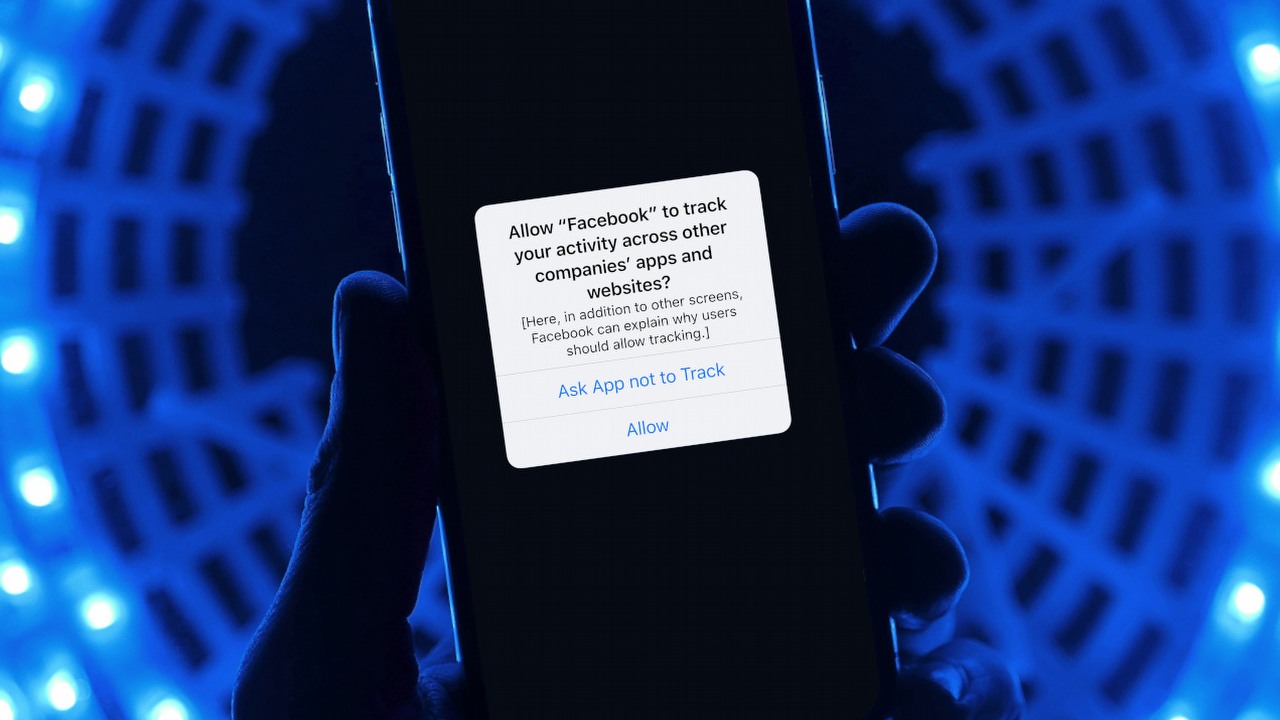Facebook Has a Problem - Ad Revenue Could Drop as People Don't Want to be Tracked
Mark Zuckerberg may not be happy with the changes in the new version of iOS. After the June update, Facebook's ad revenue may drop significantly. The reason is the lack of consent of users to track their online activities.

- The June iOS update added the ability to ask the user for permission to be tracked;
- Ad providers, such as Facebook, are already counting their losses.
Apple consistently continues its policy of protecting user data. iOS version 14 introduced the ability to decide what information apps collect. The June update takes another step towards securing user privacy. Now a user of, say, an iPhone will be asked to give permission to being tracked by any app. And according to the data, only 25% of people allow tracking when they can make a choice. Mark Zuckerberg makes money through Facebook ad campaigns, so such a prompt could affect his income.
Many social media apps, such as the one dedicated to Facebook, track user activity to profile ads accordingly. The idea here is that someone whose online behavior reveals, for example, that he needs a vacuum cleaner, will have banners displayed with different models of such devices. If he makes such a purchase, Facebook categorizes the user, saving his preferences. This significantly increases the effectiveness of ads and at the same time causes advertisers to be willing to pay more for profiled campaigns.
According to the data, almost 75% of iPhone owners have already downloaded the latest version of iOS. Now the system will actively ask and require consent for tracking for each application. Given how "readily" it is given, it is reasonable to assume that a dry spell is coming for those who rely heavily (or entirely) on advertising. Eric Seufert, author of the Mobile Dev Memo blog, claims that the lack of consent to track 80% of Apple devices users could cost Facebook as much as 7 percent of revenue.
“It’s been pretty devastating for I would say the majority of advertisers. The big question is: Are we seeing just short-term volatility where we can expect a move back to the mean, or is this a new normal?,” asks Eric Seufert
It's not just Facebook that could lose. Its advertisers aren't happy about the changes either. Zach Stuck, founder of Homestead Studio (an ad agency), claims:
“What Facebook was great at is they were able to see who bought and find that user’s buyer behavior – what other websites are they visiting, what other things are they doing.”
A Facebook spokesman describes Apple's changes:
“Apple’s policy is hurting the ability of businesses to use their advertising budgets efficiently and effectively, and the limitations being created are driven by Apple’s restrictions for their own benefit."
At the same time the spokesman announces adapting ad personalization mechanisms to work without tracking, using only current data from the user's device. Apple's boss Tim Cook argues that the right to protect our data is a "fundamental human right". He responded to Facebook's earlier allegations:
"The only reason you would get less data is because people are consciously deciding not to do it and were not being asked before."
As you can see, the dispute around privacy concerns may escalate. Of course we understand the benefits of tracking. We also understand why Facebook can be "free" to use for the average user. However, it is also important to understand that Apple doesn't block tracking, it gives you a choice. Any voice of disapproval from advertisers directed at iOS developers is actually about a feature that gives us a choice.
- Problems with X (formerly Twitter) and ChatGPT (unlock challenges) continue as Cloudflare Global Network is experiencing issues
- Cloudflare loses court battle and must pay $3.2M to Japanese publishers over manga piracy sites
- X has rolled out a new feature that’s got everyone talking. Turns out, a lot of accounts aren’t really who they say they are
0

Author: Arkadiusz Strzala
His adventure in writing began with his own blog and contributing to one of the early forums (in the olden days of Wireless Application Protocol). An electrical engineer by profession, he has a passion for technology, constructing and, of course, playing computer games. He has been a newsman and writer for Gamepressure since April 2020. He specializes in energy and space tech. However, he does not shy away from more relaxed matters every now and then. He loves watching science-fiction movies and car channels on YouTube. He mainly plays on the PC, although he has modest console experience too. He prefers real-time strategies, FPS and all sorts of simulators.
Latest News
- End of remote work and 60 hours a week. Demo of Naughty Dog's new game was born amid a crunch atmosphere
- She's the new Lara Croft, but she still lives in fear. Trauma after Perfect Dark changed the actress' approach to the industry
- „A lot has become lost in translation.” Swen Vincke suggests that the scandal surrounding Divinity is a big misunderstanding
- Stuck in development limbo for years, ARK 2 is now planned for 2028
- Few people know about it, but it's an RPG mixing Dark Souls and NieR that has received excellent reviews on Steam, and its first DLC will be released soon

